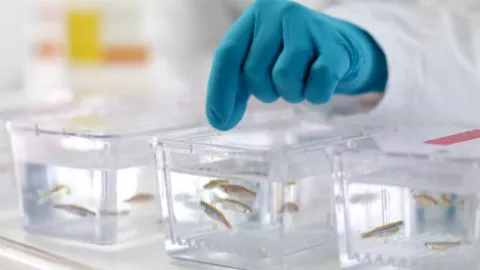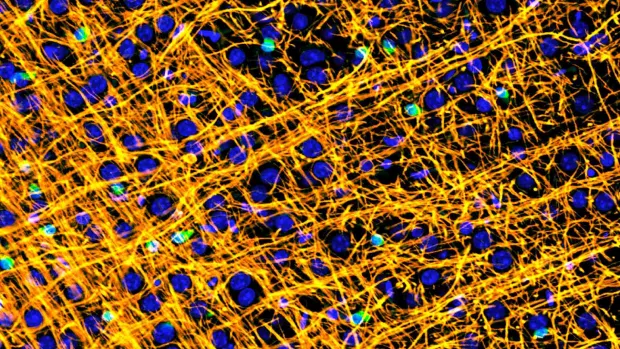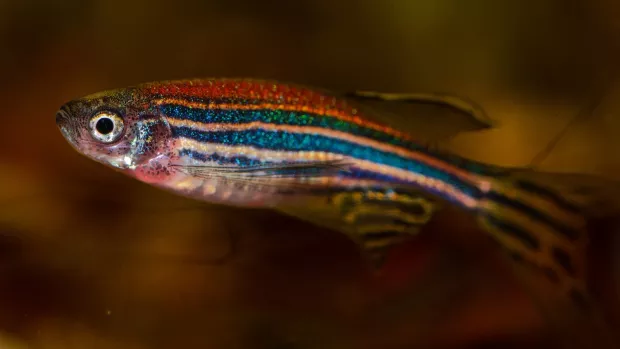
Zebrafish study shows cells that survive myelin damage are worse at producing myelin
A study published today by researchers at the MS Society Edinburgh Centre for MS Research found another clue to what goes wrong in MS – and what we could do to change it.
In MS, the immune system attacks myelin – the protective coating around our nerves. If too much myelin is lost, the nerves underneath become vulnerable and can be destroyed. This is what leads to progression in MS.
To stop MS, we need to find ways to help our bodies repair damaged myelin and keep nerves safe.
Fewer myelin coats - and they're in the wrong place
Myelin is produced by cells called oligodendrocytes. Some oligodendrocytes die during immune attacks and need to be replaced. But evidence suggests other oligodendrocytes may survive the attacks and even go on to try to produce new myelin.
This new study has discovered these surviving cells produce far less myelin than new oligodendrocytes. They also send the myelin to the wrong part of the nerve much more often.
The researchers found this pattern both in small transparent fish called zebrafish. And in brain tissue donated to the MS Society UK Tissue Bank from people with MS after they passed away.
"Important implications for future treatments"
We don’t yet know exactly what causes nerves to be destroyed. This discovery adds more information about what’s going wrong.
Current research is looking at how we can help the body make new oligodendrocytes more efficiently. The knowledge that new oligodendrocytes are much more effective at producing new myelin than survivors gives us more hope this strategy could be successful.
The researchers also suggest another way the discovery could help the search for myelin repair treatments. We know the loss of oligodendrocytes can be a signal for the body to generate new ones. So if we could destroy these less efficient surviving cells, we might be able to make way for new, more effective cells. But we’ll need more research to tell us the answer.
Dr Clare Walton, Head of Research at the MS Society, says:
“We’re really proud to have helped fund this latest study from Edinburgh, which could have important implications for future MS treatment. MS is relentless, painful and disabling, and we need to find ways to repair damaged myelin so no one has to worry about their MS getting worse."
“Improving our understanding of what happens after myelin becomes damaged is one of our research priorities, and studies like this take us another step closer to our important goal of stopping MS.”



